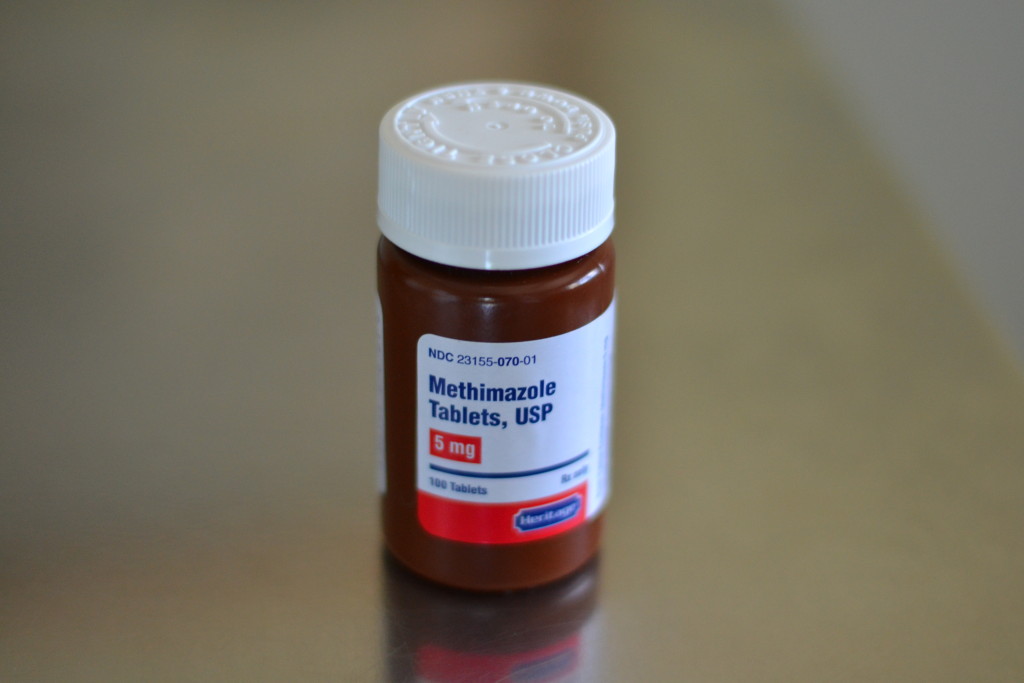Hyperthyroidism
The thyroid is a two-lobed gland located in the lower part of the neck. It produces a substance called thyroid hormone, which is transported via the blood to the cells in the body. Thyroid hormone regulates how fast cells function. Too much thyroid hormone speeds up the metabolism and causes illness. No matter how much the cat eats, they burn calories faster than they can replace them. Hyperthyroidism is the most common endocrine disease in cats. It usually occurs in cats eight years of age or older.
Symptoms:
- Weight loss
- Increased appetite (polyphagia) or decreased appetite
- Increased water intake and urine output
- Hyperactivity
- Dysphonia (change in meow)
- Change in coat
- Vomiting
It is unknown why cats develop hyperthyroidism. 15% of cats have a solitary thyroid tumor and 80% have excess activity on both sides of the thyroid.
Diagnosis is made by a blood test. In most cases a Total T4 is run along with chemistry tests to rule out other diseases and to assess the liver and kidneys, and a CBC is done to look at cell counts. In some cases a Free T4 may be added.
Treatment is by one of four methods:
1) Methimazole – reliable, generic, inexpensive drug that has been used successfully for decades. It works by suppressing the thyroid gland. It requires periodic rechecks for dose adjustments and to assess liver and kidney function. It is the generic form of Tapazole.
2) Hills y/d Feline Thyroid Health Adult Cat Food – a new treatment that uses a food very low in iodine, the building block of thyroid hormone. It works well when fed exclusively.
3) Radioactive iodine injection (I131) – permanent cure. Must be done with care because it is irreversible and temporarily makes the cat radioactive. Done by specialists, it costs more than other treatments in the short term.
4) Surgery – rarely done anymore due to risk and availability of better alternatives.
Cats living with hyperthyroidism must be monitored for weight changes and also for high blood pressure, which may need additional treatment with a drug called amlodipine. The disease is very rewarding to treat, with many cats regaining weight and living for years after diagnosis.
For more information or if you believe your cat might have hyperthyroidism, please call us.
Evesham Veterinary Clinic
Marlton, NJ 08053
(856) 983-9440

